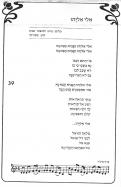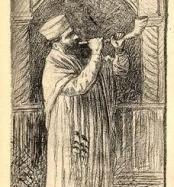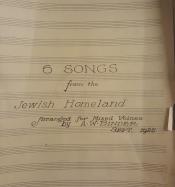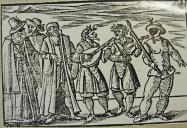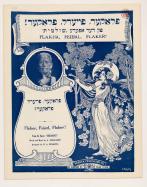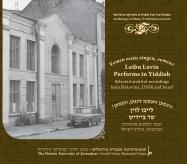(537 results found)
“Eli Eliyahu:” The Havdalah Piyyut and its Melodies
… a particular time, and specified as a melody in the Turkish mode makam husseyni . Characteristic of this version is the … book “Elef zemer ve-‘od zemer,” a practical collection of modern and old Hebrew songs intended for Israeli singing …
Four Melodies for Four Questions
… the character of the texts included in this compilation. As modernity made its inroads into Jewish homes, more metric … sources that can be grouped into two versions, one in major mode (the vast majority of the documented versions) and one in a minor mode. Both versions are pentatonic or even tetratonic and …
Debbie Friedman’s Shema’ Koleinu: An ancient prayer in a new musical garment
… many worshippers were seeking more accessible, communal modes of prayer. Friedman’s early compositions were designed … cry”—an octave leap at the opening of a melody—appears in modern Hebrew compositions in which the singing subject … modality is also a characteristic of the Ashkenazi prayer mode ( shteyger ) called Adonai Malakh . This shteyger is …
A centerpiece of the High Holydays liturgy: Shofet Kol Ha'aretz in Moroccan and Yemenite versions
… Jews. Manuscript 85 of the Archivio Storico Comunale of Modena contains fragments from an order of Selihot of the … pentatonics, but uses a strongly profiled Jewish prayer mode whose foremost characteristic is a stock of idiomatic … Of course his terminology is a bit uncomfortable to post-modern ears. Categories of authentic and ethnic musical …
Assaf Shelleg
… Assaf Shelleg (The Hebrew University of Jerusalem) studies modern and contemporary musics with a particular interest in …
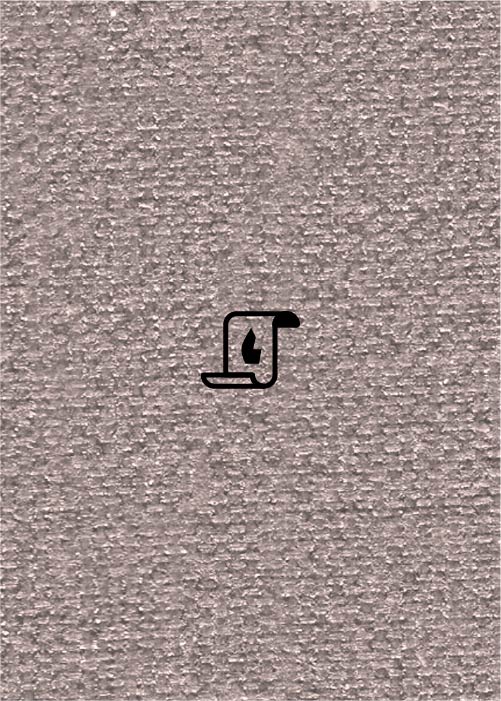
Eastern Ashkenazi Biblical Cantillation: An Interpretive Musical Analysis
… around the world. There are six sets of melodies or “modes” in the Eastern Ashkenazi tradition of Biblical cantillation; I will characterize each mode with a variety of music-analytical tools (not only in terms of scales, as is often done), compare the modes with each other, and suggest hearings that link them …
Na’aleh L’artzeinu – A Simple Melody with an Intricate Story
… obscurity and are only known to experts in the history of modern Hebrew song. Na’aleh L’artzeinu is only dimly … culture, the contemporary klezmer scene, and even into modern synagogue liturgical practice. As the first published … his first efforts in what would be a life-long devotion to modern Hebrew song. In 1922 Binder began his position as …
Haint Iz Purim, Brider, Part II
… repertoires were constructed by diverse agents in the modern period. One of the recordings of this song that we … rhythmic melodies, a tradition that was maintained in the modern Israeli repertoire of Purim songs, especially for … wordless niggunim are mediated by their adoption to modern Yiddish and Hebrew song texts. References Brown, …
Haynt Iz Purim, Brider
… studying them shows the complex process through which modern favorites in the Jewish repertoire were constructed … Kisselgof and his colleagues attempted to provide modern Jewish families with educational songs for all the … Abraham Goldfaden (right), for many the “founder” of modern Yiddish theatre. Indeed, the melody appears for the …
Vemen vestu zingen, vemen? Leibu Levin Performs in Yiddish
… … Archival recordings … Bukovina … Historical recordings … Modern Yiddish stage … Non-religious Yiddish music … USSR … …



